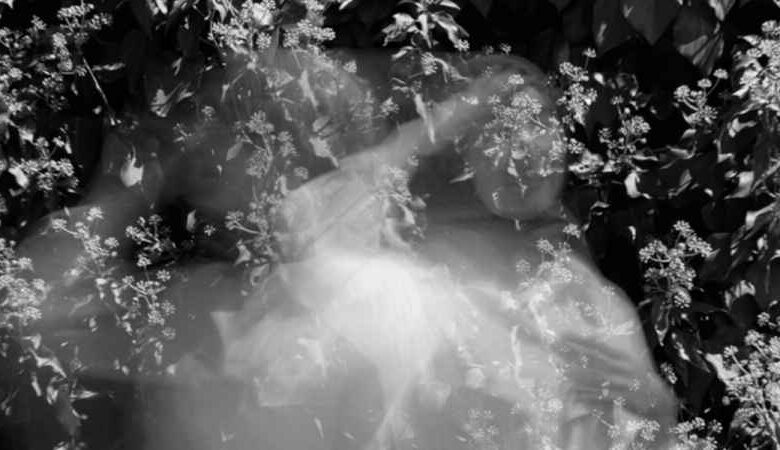How Residual Energy Might Be Haunting Us With Memories Of The Past

The commonly held definition of a ghost is that it’s the spirit of a deceased human that’s capable of interacting with its environment or the living, but residual hauntings break from this belief and are more like recordings of an event that replays itself without the presence of an aware spirit.
Imagine walking into an old building and suddenly hearing the sound of footsteps in the hallway when no one is there, or seeing the fleeting image of a person from another era crossing a room before vanishing. These experiences, often reported by both paranormal investigators and unsuspecting visitors, are typically associated with residual hauntings, also known as “place memories.”
The theory suggests that events can leave an imprint on the environment, especially deaths, suffering, and other traumatic or intensely emotional events. Under certain conditions, these imprints can replay in the form of sights, sounds, smells, and even feelings of the past. These replays might occur on the anniversary of an event, when the atmospheric conditions are the same, or when perceived by sensitive individuals or those who are in some way ‘in tune’. These replays can include the sound of footsteps, voices, or even full apparitions going about their business as if they were still alive.
The thing that makes these experiences different from traditional hauntings is the absence of interaction. Unlike intelligent hauntings, where entities are believed to be aware of their surroundings and can communicate with or react to people, residual hauntings are not conscious and do not interact with the living world. Residual hauntings do not respond to questions, move objects, or perform actions that indicate they have intentions or desires. They are passive, merely replays of the past without awareness or interaction, like a video from the past that replays. For this reason, the phenomenon is also referred to as “stone tape theory.”
Stone tape theory refers to a hypothetic mechanism that attempts to explain how these memories or impressions are recorded and replayed in the environment. Coined in the 1970s, the theory proposes that events leave an imprint in the materials of a building or location in a similar way to how images are stored on magnetic tape. According to this theory, certain materials, especially those with crystalline, ferric, or magnetic properties, have the ability to store these events and replay them under the right conditions.
Stone tape theory, or imprint theory, isn’t the only idea that’s been proposed to explain residual hauntings. Another popular explanation is that the environment itself, including the atmosphere and the Earth’s magnetic field, is capable of capturing and maintaining these memories. Changes in environmental conditions, such as electrical storms or shifts in geomagnetic fields, might trigger the playback of these recorded energies.
H. H. Price, a Welsh philosopher born in 1899, proposed the idea of a “psychic ether,” which he believed would act as a medium in which the memories associated with a place could be stored. He went as far as to claim that apparitions are actually memories of people and that, under the right conditions, they can be seen as hallucinations.
The distinction between residual and intelligent hauntings helps to classify paranormal occurrences based on their characteristics and behaviours, which can help investigators develop theories about the nature of hauntings. Knowing whether a haunting is residual or intelligent can help shape an investigation. Residual hauntings don’t respond to attempts at communication or interaction, so if you believe you are dealing with residual energy, then it might be more beneficial to focus on capturing audio or visual evidence. For an intelligent haunting, you may choose to attempt to communicate using ghost hunting devices like electromagnetic field (EMF) meters or electronic voice phenomenon (EVP) sessions.
For those who believe they are living in a haunted location, understanding the nature of the haunting can provide peace of mind and reassurance. Knowing that a residual haunting is essentially a harmless replay of past events might alleviate fears and concerns, distinguishing them from potentially more unsettling experiences with intelligent entities that are aware of and can interact with the living.
It can, however, be difficult to distinguish between some residual and intelligent activity. For example, knocks and rapping could be echoes of the past or an attempt at communication. Similarly, footsteps could be the sound of someone from the past going about their daily life, or they could be a curious spirit coming closer. Even a visual phenomenon could be unclear, how can you be sure if an apparition is a residual vision from the past or a ghost walking with intent?
The only clues we really have are several characteristics, which tend to be more about beliefs within the paranormal community than anything measurable. The most commonly cited of these is that residual hauntings tend to be repetitive or show signs that they are interacting within the environment of their own time rather than ours. For example, residual apparitions are reported to pass through bricked-up doorways or walk on levels different from the current floor, suggesting they are navigating an environment that once existed rather than responding to the present layout.
Like many aspects of the paranormal, the existence of residual energy and its associated hauntings is disputed. One of the arguments against the existence of residual hauntings is that the concept would require energy and information to be stored and replayed by materials in ways that violate known physical laws. There is no known mechanism by which inanimate objects can record and playback complex phenomena like sounds or visuals without a power source or playback device.
While numerous accounts and investigations suggest that some form of residual energy exists, the detection of this energy remains elusive, and evidence of the hauntings it is said to produce is inconclusive. Despite this, residual haunting and stone tape theory endure as a well-known and frequently-cited explanation for many reports of paranormal activity.



